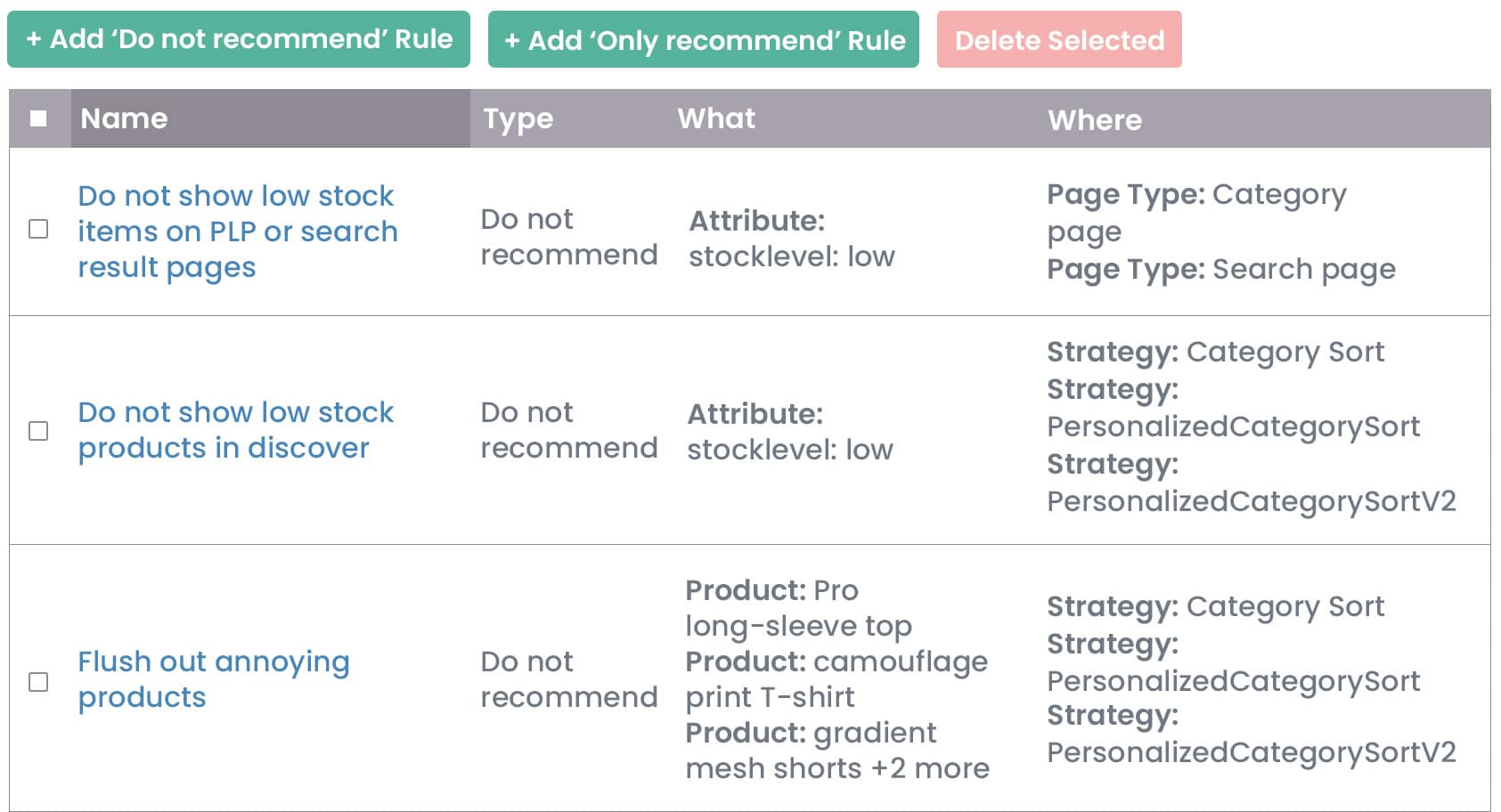Alternatives to Bold Bundles
1. Algonomy Commerce AI
+Pros
- Genuine AI capabilities through the Xen AI decisioning engine
- Real-time inventory syncing and immediate deployment capabilities
- Proven enterprise capabilities demonstrated through client relationships with McDonald's, eBay, and Tiffany & Co.
- Automated bundle generation reduces implementation effort by 80%
-Cons
- Pricing transparency issues at the entry level
- Implementation complexity may deter organizations lacking dedicated technical resources
- Resource requirements present challenges for smaller organizations
One highlighted feature and why it's amazing
Delivers genuine machine learning capabilities that analyze real-time shopper behavior, browsing history, and purchase patterns to generate dynamic bundles .

Another highlighted feature of why it’s amazing
Enables non-technical users to design bundles through visual editors while maintaining sophisticated algorithmic backing .
2. BundleKing
+Pros
- Competitive pricing structure with free tier and mid-range Growth plan ($14.96/month).
- AI-focused positioning for post-purchase upsells and bundle generation.
- No-code implementation claims targeting rapid deployment.
- Revenue cap model that may suit predictable, lower-volume bundling needs.
-Cons
- Complete absence of customer validation through reviews, testimonials, or case studies.
- Unverified AI capabilities without technical documentation or performance benchmarks.
- Feature gaps compared to established competitors, including missing A/B testing, inventory sync, and advanced analytics.
- Revenue caps that may limit scalability for successful implementations.
- Vendor maturity concerns given recent market entry and zero established customer base.
One highlighted feature and why it's amazing
The vendor emphasizes generative AI for upsell copy creation and automated bundle suggestions, positioning these as primary differentiators.

Another highlighted feature of why it’s amazing
The platform targets simple bundling scenarios through what the vendor describes as an 'intelligent recommendation engine,' though technical specifications and algorithmic approaches remain undisclosed.
3. BundleKing
+Pros
- Competitive pricing structure with free tier and mid-range Growth plan ($14.96/month).
- AI-focused positioning for post-purchase upsells and bundle generation.
- No-code implementation claims targeting rapid deployment.
- Revenue cap model that may suit predictable, lower-volume bundling needs.
-Cons
- Complete absence of customer validation through reviews, testimonials, or case studies.
- Unverified AI capabilities without technical documentation or performance benchmarks.
- Feature gaps compared to established competitors, including missing A/B testing, inventory sync, and advanced analytics.
- Revenue caps that may limit scalability for successful implementations.
- Vendor maturity concerns given recent market entry and zero established customer base.
One highlighted feature and why it's amazing
The vendor emphasizes generative AI for upsell copy creation and automated bundle suggestions, positioning these as primary differentiators.

Another highlighted feature of why it’s amazing
The platform targets simple bundling scenarios through what the vendor describes as an 'intelligent recommendation engine,' though technical specifications and algorithmic approaches remain undisclosed.
Other Alternatives
FastBundle
Kefi AI Bundles
Monetate Personalization Platform
Pokee AI
PureClarity AI
Rebuy
How We Researched This Guide
About This Guide: This comprehensive analysis is based on extensive competitive intelligence and real-world implementation data from leading AI vendors. StayModern updates this guide quarterly to reflect market developments and vendor performance changes.
176+ verified sources per analysis including official documentation, customer reviews, analyst reports, and industry publications.
- • Vendor documentation & whitepapers
- • Customer testimonials & case studies
- • Third-party analyst assessments
- • Industry benchmarking reports
Standardized assessment framework across 8 key dimensions for objective comparison.
- • Technology capabilities & architecture
- • Market position & customer evidence
- • Implementation experience & support
- • Pricing value & competitive position
Research is refreshed every 90 days to capture market changes and new vendor capabilities.
- • New product releases & features
- • Market positioning changes
- • Customer feedback integration
- • Competitive landscape shifts
Every claim is source-linked with direct citations to original materials for verification.
- • Clickable citation links
- • Original source attribution
- • Date stamps for currency
- • Quality score validation
Analysis follows systematic research protocols with consistent evaluation frameworks.
- • Standardized assessment criteria
- • Multi-source verification process
- • Consistent evaluation methodology
- • Quality assurance protocols
Buyer-focused analysis with transparent methodology and factual accuracy commitment.
- • Objective comparative analysis
- • Transparent research methodology
- • Factual accuracy commitment
- • Continuous quality improvement
Quality Commitment: If you find any inaccuracies in our analysis on this page, please contact us at research@staymodern.ai. We're committed to maintaining the highest standards of research integrity and will investigate and correct any issues promptly.